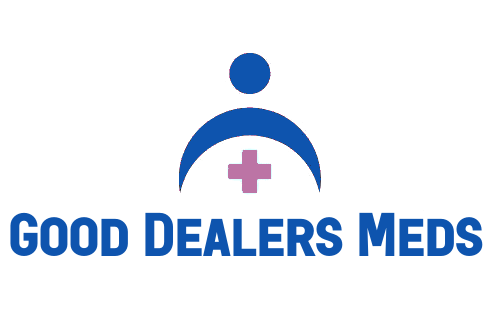MDMA, also known as “ecstasy” is the abbreviation for 3,4-methylenedioxymethamphetamine, a stimulant manufactured from safrole oil. The effects of MDMA include its characteristic effect, a sense of togetherness, as well as effects that are similar to both stimulants and psychedelics.
Merck, a pharmaceutical corporation, created MDMA for the first time in 1912. But it wasn’t until 1976 that Alexander Shulgin created a new synthesis technique, tested the substance on himself, and distributed it to a small group of friendly psychotherapists that its psychedelic effects were publicly recognised. In the 1970s and the beginning of the 1980s, the substance began to be utilized both recreationally and in psychotherapy procedures due to its effects on increasing empathy and decreasing fear.
Numerous MDMA tablets have been found to contain several drug combinations, according to research. Methamphetamine, the anesthetic ketamine, caffeine, the diet medication ephedrine, the over-the-counter cough suppressant dextromethorphan, heroin, phencyclidine (PCP), and cocaine have all been identified as adulterants in street-purchased MDMA tablets.
You can also buy MDMA capsules Online from our website store without a doctor’s prescription at best quality.
Is MDMA Addictive?
Although MDMA affects many of the same neurotransmitter systems in the brain as are targeted by other addictive drugs, research hasn’t conclusively determined if it is addictive.
Data from both humans and animals indicate adaptations in the serotonin and dopamine systems brought on by regular MDMA use, which are linked to substance use disorder and related behaviors including greater impulsivity. There hasn’t been much research that has tried to evaluate MDMA addiction or reliance on people who have previously used it in the general public.
Some MDMA users do experience addiction-related symptoms, such as persistent use despite unfavorable physical or psychological effects, tolerance, withdrawal, and craving.
How Long Does MDMA Stay In Body?
After consumption, MDMA is typically detectable in body fluids for one to three days. However, in some cases, it may not be seen for five days or longer. It remains detectable in hair for several months, just as other medications.
The majority of fluid-based detection methods are predicated on single doses between 50 and 160 milligrammes (mg). It could take longer for higher doses to leave your body.
Based on when you last took the drug, detection times are calculated. The detection period can be extended by taking many doses spread out across several hours.
How Does MDMA Work?
MDMA is readily absorbed into the bloodstream after consumption. If eaten on an empty stomach, it can reach the brain in about 15 minutes.
The effects of MDMA are brought on by an increase in the brain chemicals that are responsible for these changes. The three substances are:
- Serotonin, a hormone that influences mood, sleep, hunger, and can trigger the release of chemicals that boost emotions of trust.
- Dopamine, which increases awareness and activity.
- Norepinephrine, which raises blood pressure and heart rates.
Additionally, taking MDMA raises the body’s levels of a hormone that promotes fluid retention, which might result in an electrolyte imbalance if you consume a lot of fluids while using the drug.
How Long MDMA Stays In Body?
MDMA is absorbed, degraded, and removed either more quickly or more slowly depending on a number of variables. These factors include the total quantity consumed and whether it was taken in one or more doses.
Even though it is marketed as “pure,” MDMA is frequently mixed with other illegal substances or chemicals.
Buy MDMA Online without a doctor’s prescription at your doorstep from our online store.
Combining MDMA tablets or capsules with other substances can change how long it stays in your system and how long it may take for an illegal drug to be discovered on a drug test.
Finally, several unique circumstances can have an impact on medication metabolism. These consist of:
- Age
- Metabolism
- Kidney Function
- Liver Function
- Genes
Benefits Of MDMA Usage
Eighty-four percent of participants said their moods had improved, seventy-one percent had fewer nightmares, sixty-nine percent had less anxiety, and sixty-six percent had better sleep. The findings from all of the research revealed that MDMA-assisted therapy was assisting in reducing the severity of PTSD rather than just masking symptoms.
However, thanks to a number of recent clinical trials conducted in the United States and overseas, its reputation in the medical world is changing.
The following are a few of the desired short-term effects of MDMA:
- Euphoria
- Openness to Others
- Extraversion and Sociability
- Increased Sensory Perception
- Increased Energy
- Sexual Arousal
- Wakefulness
Side Effects Of MDMA Overdose
Body temperature can rise after ingesting a significant amount of MDMA. Sometimes, this might result in kidney failure, heart failure, or even death.
Within a week of consuming MDMA, other harmful consequences may start to manifest. They may consist of:
- Loss of Appetite
- Blurry Vision
- Insomnia
- Anxiety
- Agitation
- Depression
- Lack of Focus
- Recklessness
MDMA Abuse Treatment
Detoxification removing the substance from the user’s system is typically the first step in recovering from any addiction. Sometimes, this is the most challenging phase of recovery. Following detox, patients have a variety of rehab and counseling choices, including inpatient and outpatient care.
The age group most at risk for abusing MDMA comprises those between 16 and 24. It’s advised that treatment professionals for these people have further training in dealing with the problems that arise in this group because treating teenagers and young adults with substance use disorders is a delicate affair.
Cognitive behavioral therapy, which aims to change the patient’s thoughts, expectations, and behaviors and improve coping mechanisms, are currently the most successful treatments for people with MDMA use disorders. To assist long-term recovery, recovery support groups may be useful in conjunction with behavioral therapies.
Treatment options for someone with a hallucinogen use disorder include:
Medical aid: A clinic might give you medicine to help you handle cravings and withdrawal symptoms.
Group and specialized therapy: Addiction treatment facilities can include a variety of therapeutic plans, including group counseling.
Coordination of the care plan and social support: Some providers might refer patients to social services and coordinate the care plan.

